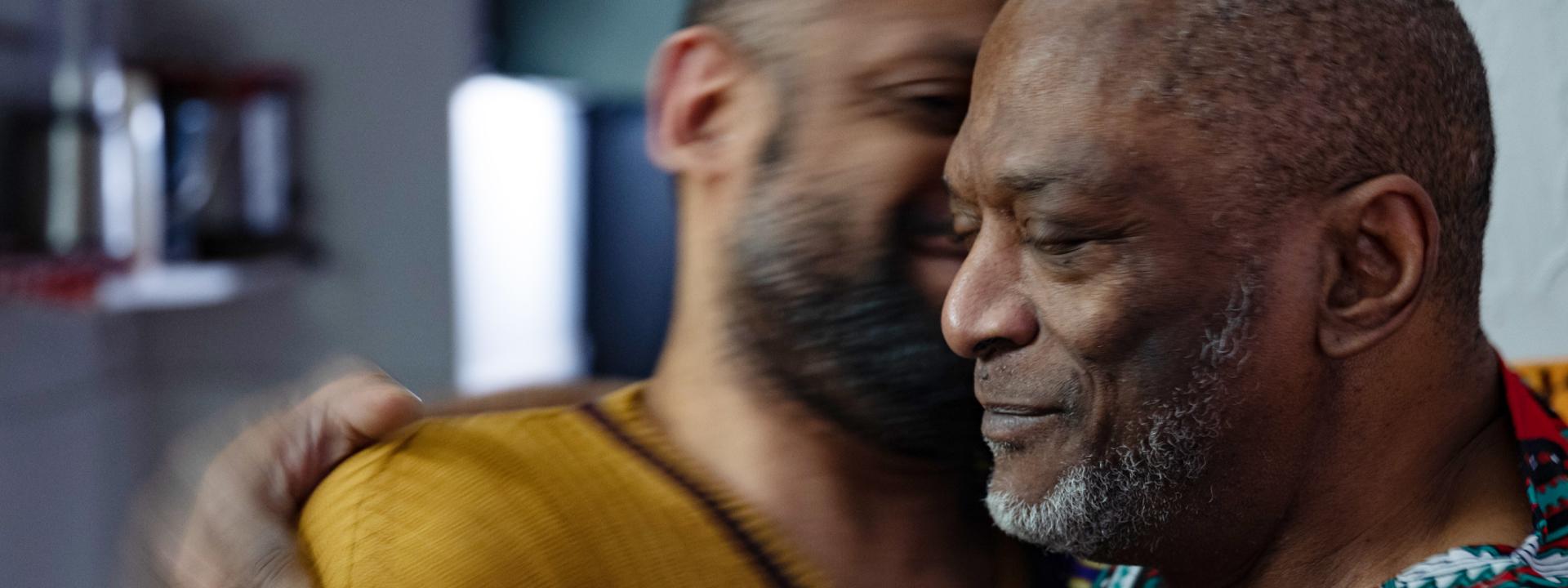Remembering Bryan C. Jones
Many who knew him called Bryan C. Jones a “warrior.” A long-term survivor of HIV and a vocal advocate, he also overcame several bouts of cancer. On Saturday afternoon, December 29, Jones finished his last fight, this time with colon cancer. He passed peacefully at the home in Cleveland he shared with his partner Derek Barnett, accompanied by his family, Barnett and his beloved chihuahua Diva Pearl at his side.
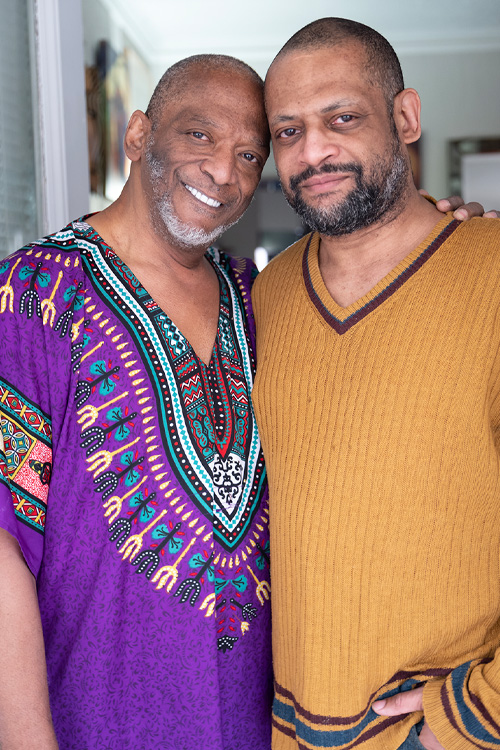
Jones (left) with Barnett: “He had a big personality. He was funny, he dressed to the nines, he could burst out spontaneously into song. But he was also a very serious thinker.”
Barnett and Jones were together for six years; the last year or so, Barnett had become Jones’ primary caregiver. With his partner, Jones shared a side of himself that few others saw. In a conversation with POSITIVELY AWARE, Barnett offered some glimpses of the man many saw as an outspoken advocate.
“He was always trying to do the right thing for the community and for people who he knew individually if they're having a crisis,” Barnett said. “Not that he had any means himself, but that's just the kind of person he was. But he was also the kind of person who wasn't afraid of bending some noses and stepping on toes if it meant that the community would get what it needed. He would say all the time, If I have to be uncomfortable in the room, then everybody in the whole damn room can be uncomfortable. But I'm going to say what needs to be said. That was the essence of his brand of advocacy.
Jones was diagnosed with HIV in 1984, which would set him on a lifelong path of advocacy. Much of his work centered on equity and accessibility for the Black community and disadvantaged peoples, efforts to update laws criminalizing HIV, aging and U=U (Undetectable Equals Untransmittable), the message that people with HIV who have an undetectable viral load do not transmit HIV through sex. He was a founding member of the Ohio Health Modernization Movement, an HIV decriminalization organization; a founding member of the U=U campaign and one of the Prevention Access Campaign’s first U=U ambassadors. As as same-gender-loving man and Orthodox Muslim, he was on the board of RAHMA, a national organization for Muslims living with HIV.
“Bryan, I found out later, had a Facebook crush on me for a while before I even met him,” Barnett said. “We had become Facebook friends. This was during a time when I was pretty depressed. It hadn’t been too long that I had moved back to Cleveland to be the caretaker for my mom. After having been away for 10 years, the people who would have been my social network were all spread out across the country, and I felt really alone. I know that it’s harder to make friends the older you get, so I made a conscious effort. One day, it was Election Day 2018, Bryan had posted a video on Facebook, and he was ranting that he has to walk all the way back home because he went to the poll to vote and they wouldn't accept his passport as a valid ID. I thought it was funny. I posted a comment saying, It doesn't make sense they wouldn't accept a passport as proof that you are a citizen, but you know, it is kind of bougie that you’d take your passport to the poll, you know? LOL. From there, we struck up a conversation, agreed to meet, hang out, and the rest is history.
“In the last year the cancer had been progressing such that the pain was intensifying, and it was a lot more frequent. He was in almost constant pain. But when we were out in public or with friends or family, he didn't really let on. He did a lot to suppress what was actually going on with him. He was the same Bryan that people were used to—laughing and joking and flirting—but the minute we were together alone was when he could let go. I'll never forget the nights when he was wailing in pain. I would rub his leg, rub his arm, rub his back all night long—six, seven, eight hours straight. I didn't get to experience the Bryan that everybody else did because this was the space where he could let it all go. I started to miss him before he was gone.
“People are complicated and Bryan was no different,” Barnett said. “He was always very passionate, but he was also insecure. He was concerned that, People might think that I'm the angry Black guy. People might think that I'm very aggressive. He was very, very sensitive, despite his outward appearance sometimes. But he very much believed in telling it like it was. Having validation from the community was important to him. I’m so glad that he got to receive his roses while he was still alive.”
Asked how he is doing, Barnett paused. “It's a bittersweet time,” he said. “I don't have a large family. I lost my mother a couple of years ago. Now that Bryan is gone, it’s a little lonely, but I’m glad that he is at rest. I’m an introvert; I'm not a people person. It’s one of the reasons I was drawn to Bryan, because we complemented each other that way. He lit a fire under me and I calmed him down. I wasn't necessarily ready for a relationship when we met. He later told me, I never thought I would be with someone like you. You were a gift from God for me. I can't imagine a higher compliment.”
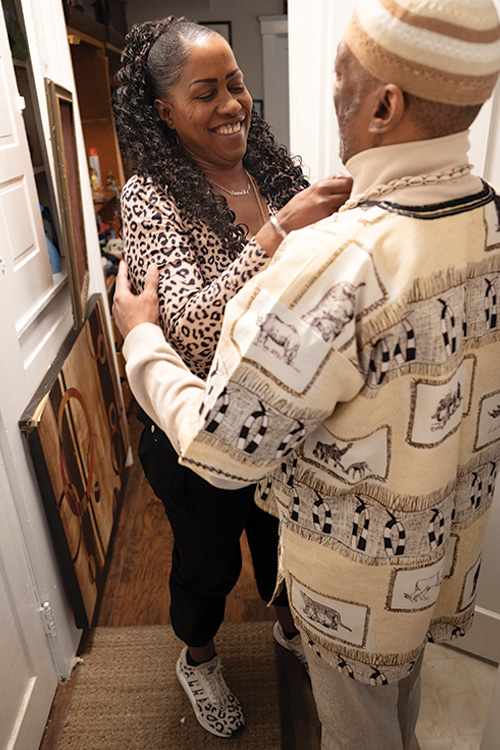
Dee Conner helps Jones prepare to go to chemotherapy, in early 2023
“He is truly going to be missed by so many lives that he has changed,” said his longtime friend and fellow HIV advocate Dee Conner. “His loss is one that saddens me because I lost a brother. He was more than a friend.”
Conner and Jones wrote for the May+June 2023 issue of POSITIVELY AWARE as Jones shared that he was undergoing chemotherapy and radiation treatment for his fifth bout with cancer, this time throat cancer. In “Taking care of our own,” Conner wrote about coming to the side of her longtime friend, whom she had nicknamed “Jethro,” and he had called her “Ella.” Jones wrote a firsthand account, reflecting on surviving cancer while living with HIV, titled, “I’m still standing.”
“Bryan is a warrior inside and out, and a lot of times I wish people understood him the way that I do,” Conner wrote in her cover story.
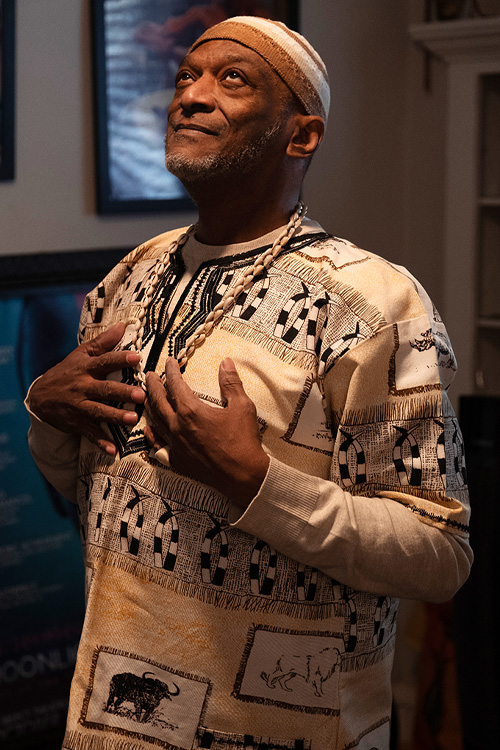
“I push on, move out and climb up to the next plateau, ready to take on the next fight,” wrote Jones in his 2023 reflection.
In his reflection, Jones wrote, “...one thing I know about myself and the people whom I’ve grown accustomed to and have welcomed into my life, we are all resilient people. We come with our own set of strengths and weaknesses.”
“I tell people that when I’m living my worst life, I’m living my best life because I learn so many things while in that valley trying to claw my way up and out. I’ve learned so many things that have helped me in these dark moments. I’ve thought about what advice I would give somebody in this situation. It’s always a message of hope, so I take my own advice and I push on, move out and climb up to the next plateau, ready to take on the next fight.”
A memorial is being planned for April in Atlanta; details to be announced. Community advocates close to Jones have organized a fundraiser to support the event. Contributions will be managed by PositivelyU, a community-based organization for people with HIV in central Florida founded by Janet Kitchen. The donation page for Jones’ memorial can be found here.
As 2024 was drawing to a close, the HIV community was stunned by the passing of other HIV advocates, among them, A. Cornelius Baker and Cindy Stine.
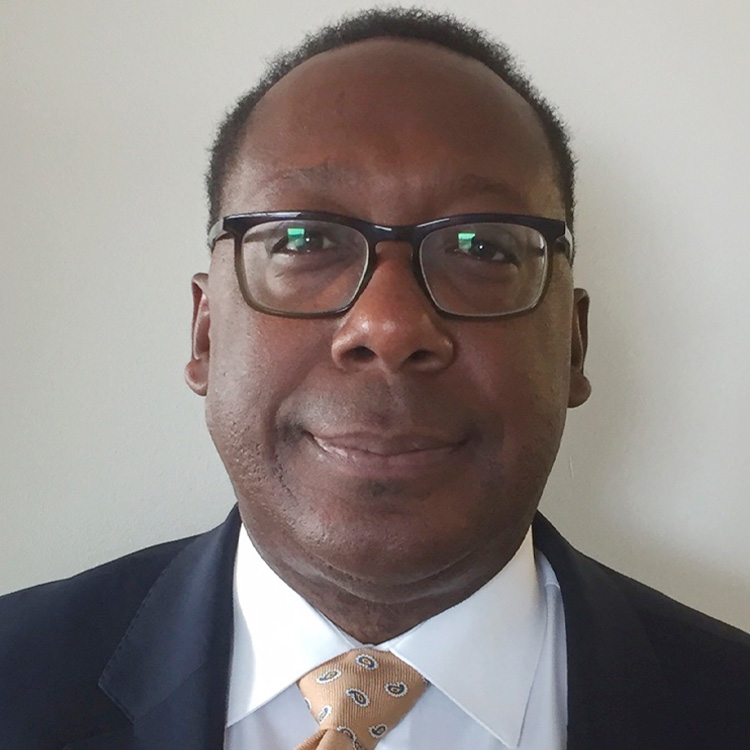
Cornelius Baker (Forum for Collaborative Research)
For nearly 40 years, Cornelius Baker’s work in various roles in government, advocacy organizations and global health included promoting HIV testing, securing federal funding for research and pushing for a vaccine. A champion for access and equity, he led by example and was a hero and mentor to many. Baker, 63, died November 8 at his home in Washington, D.C. At the time of his passing, he was serving as special advisor to the Office of AIDS Research and PEPFAR liaison at the National Institutes of Health and as board chair for Us Helping Us People Into Living.
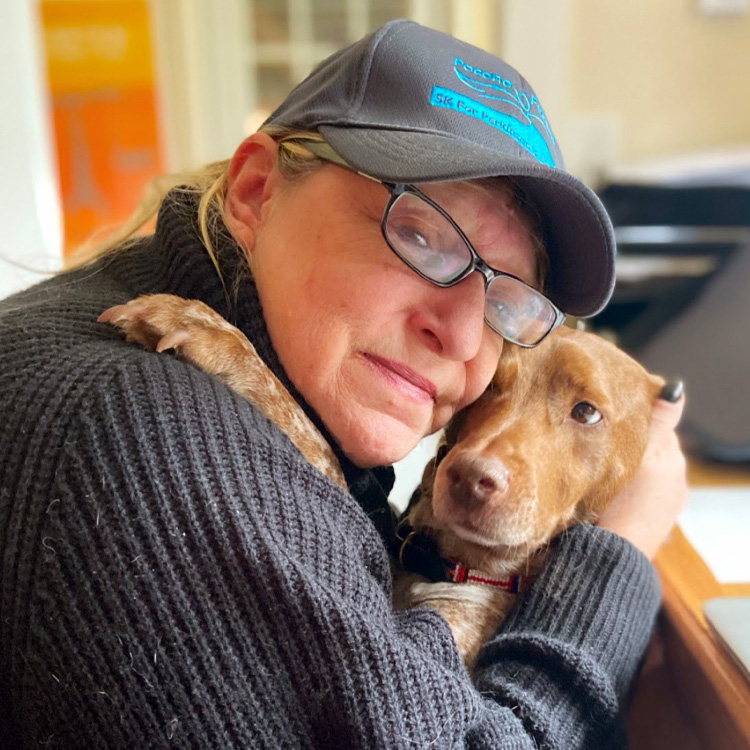
Cindy Stine (courtesy of Lizzie Stine)
On December 14, Cindy Stine, who had been The Sero Project’s development director and a strong advocate for HIV decriminalization, passed. “Cindy was more than just a friend, coworker, and advocate,” said Sero co-executive director Tami Haught, “she was a beacon of strength, compassion, and unwavering dedication. To everyone who had the privilege of knowing her, Cindy embodied kindness, resilience, and an unshakable commitment to justice and equity for all, particularly for those who have been marginalized and overlooked by society."


